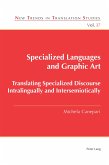For many decades, comic books have been consigned to the children's shelves at libraries and bookstores. Recently, however, a massive publishing of comic books designed for the adult audience called graphic novels has caught the attention of academics, critics and the film industry. Despite the existence of a vast theoretical bibliography of screen adaptations based on novels, those works cannot satisfactorily be used in the analysis of films based on comics and graphic novels, since they do not conceive, among other aspects, the translation of the drawings in comics to the photography of film. In this work Camila Figueiredo focuses on the specific case of the transposition of graphic novels to films. Discussing the cases of Alan Moore's Watchmen and Frank Miller's Sin City series and their respective film version, the author carries out an analysis drawing on Irina Rajewsky's categories of intermedial relations and Pascal Lefèvre's considerations about comics-to-film adaptations.
Bitte wählen Sie Ihr Anliegen aus.
Rechnungen
Retourenschein anfordern
Bestellstatus
Storno








